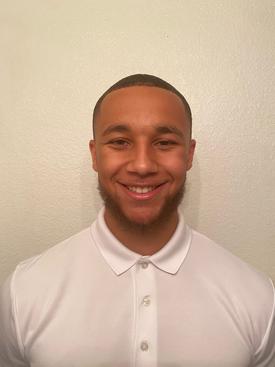Peter Carney, a second-year undergraduate student at UC Riverside, has earned a spot in a prestigious and highly competitive summer undergraduate research fellowship program at the California Institute of Technology in Pasadena. The program is hosted by Caltech LIGO.
LIGO, which stands for Laser Interferometer Gravitational-wave Observatory, is based at sites in Louisiana and Washington. It detects gravitational waves — distortions in the fabric of space — using detectors that employ high-power laser beams, offering a new way to observe the universe. On Sept. 14, 2015, LIGO detected for the first time gravitational waves predicted by Albert Einstein more than 100 years ago.

Carney, a physics major, explained that Caltech is working on making an amplifier for the laser signal carrying the gravitational wave.
“There is a main interferometer that collects the gravitational wave data using a laser beam,” he said. “This laser beam is then put into a detector, allowing for analysis. For this to work, however, our interferometer must be very still. Noise, even quantum noise, creates difficulties in reading the data. Though quantum and other noises have been fairly mitigated thanks to the work of scientists, there is still noise to be decreased.”
LIGO scientists have developed a way to amplify the interferometer output laser carrying the gravitational wave to help reduce external noises and make the data obtained easier to read. Carney will help scientists develop an automated locking tool aimed at amplifying the laser.
“Being able to carry out this research would be a help to the LIGO interferometer and lead to more efficient amplification,” he said. “In the long run, it will lead to less noise in the output, and better data to read for gravitational wave analysis.”
Carney believes the summer research experience will greatly benefit him in advancing his LIGO interferometry research.
“It will give me a much deeper understanding and intuition of the technology,” he said. “Throughout this project, I will have three graduate student mentors, and a professor to look over my research.”
Caltech's summer undergraduate research fellowship program runs from June 14 to August 19 this year. Carney will be paid a stipend of around $6,800 for the 10 weeks.
“I’m very excited to get to work on research this summer, even more so that I get to work with my mentors and colleagues at Caltech,” he said. “Being a Riverside native my whole life, I’m eager to get out a little bit and experience somewhat of a different area and atmosphere.”